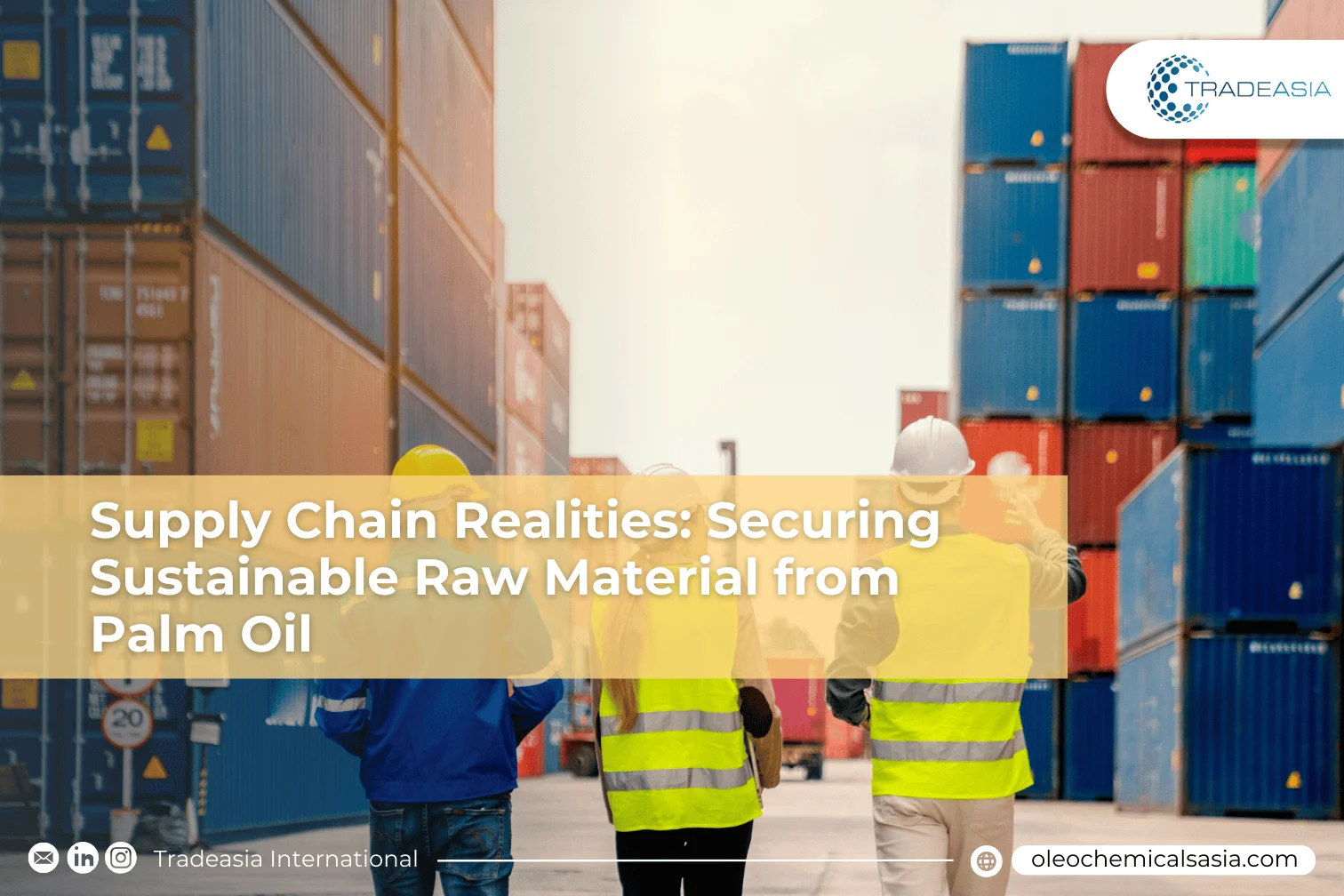Executive Summary
-
The palm oil supply chain is highly fragmented, involving plantations, smallholders, and traders, making traceability one of its biggest challenges.
-
Certification systems such as RSPO, ISPO (mandatory by 2025), and MSPO are essential tools to verify compliance with sustainability and environmental standards.
-
Supply stability is threatened by global demand surges, logistics disruptions, and tightening environmental regulations in key markets like the EU.
-
Successful companies strengthen smallholder partnerships, invest in digital traceability systems, conduct proactive risk assessments, and advocate for harmonized certification standards.
The global palm oil industry represents one of the most intricate supply chains in the world. From plantations and smallholder farms to mills, refineries, and finally manufacturers, every step adds layers of complexity. For businesses involved in palm oil trading, securing sustainable raw materials is no longer just a responsibility—it is a necessity. Rising global demand, tighter environmental regulations, and ongoing logistics disruptions have created both risks and opportunities. To remain competitive, companies must build resilient sourcing strategies that emphasize sustainability, traceability, and compliance with certification schemes such as RSPO, ISPO, and MSPO.
One of the most pressing issues is traceability. Palm oil is sourced not only from large company-owned estates but also from countless independent smallholders. This makes it difficult to track products back to their origins and verify whether cultivation followed legal and sustainable practices. Many smallholders remain unregistered, lack transparent record-keeping, or farm on land with unclear ownership status. Such conditions raise concerns about deforestation, land rights, and compliance with international standards. Building a reliable traceability system, therefore, requires collaboration across stakeholders—from governments and corporations to farmers and NGOs—supported by advanced monitoring and transparent governance.
Certification as a Cornerstone of Sustainability
Certification schemes are at the heart of efforts to make palm oil more sustainable. The Roundtable on Sustainable Palm Oil (RSPO) is the most widely recognized global standard, offering models such as Identity Preserved, Segregated, Mass Balance, and Book & Claim, each designed to provide varying degrees of traceability. These certifications undergo systematic third-party audits, ensuring compliance is more than a one-time effort.
At the national level, producing countries are introducing their own systems. Indonesia, the world’s largest palm oil producer, has mandated the Indonesian Sustainable Palm Oil (ISPO) certification for companies and smallholders by 2025, supported by digital platforms to improve transparency. Similarly, Malaysia enforces the Malaysian Sustainable Palm Oil (MSPO) scheme across all levels of production. Aligning these certifications with global standards remains essential to ensure smooth trade flows while meeting both domestic and international sustainability requirements.
Risks That Threaten Supply Stability
The supply of sustainable palm oil faces numerous risks. Global demand surges often stretch the availability of certified raw materials, creating sourcing difficulties for traders. Logistics bottlenecks—ranging from transport delays to infrastructure limitations—add another layer of uncertainty. Geopolitical events can further disrupt trade, while consumer markets such as the European Union are imposing stricter due diligence rules. These regulations increase pressure on companies to demonstrate robust traceability systems and verifiable certification across their supply chains.
In response, leading companies are adopting forward-looking strategies. They are strengthening relationships with smallholders, providing training and direct support to improve compliance with sustainability standards. Others are investing in digital traceability tools that map and monitor supply chains with precision. Companies are also using RSPO supply chain models flexibly, balancing traceability requirements with operational realities. Proactive risk assessments of suppliers and logistics partners allow businesses to anticipate disruptions before they escalate. Meanwhile, industry leaders continue to advocate for harmonization of certification schemes across producing nations, reducing complexity and ensuring smoother verification.
Ultimately, businesses in the palm oil sector must accept the realities of a fragmented and highly scrutinized supply chain. Certification schemes such as RSPO, ISPO, and MSPO provide crucial frameworks, but true sustainability depends on full-chain traceability, active risk management, and long-term collaboration. As demand grows and regulations evolve, companies that embrace these principles will secure not only their raw material supply but also their license to operate in an increasingly sustainability-driven global market. What was once viewed as an ethical choice has now become a strategic business imperative.

Leave a Comment